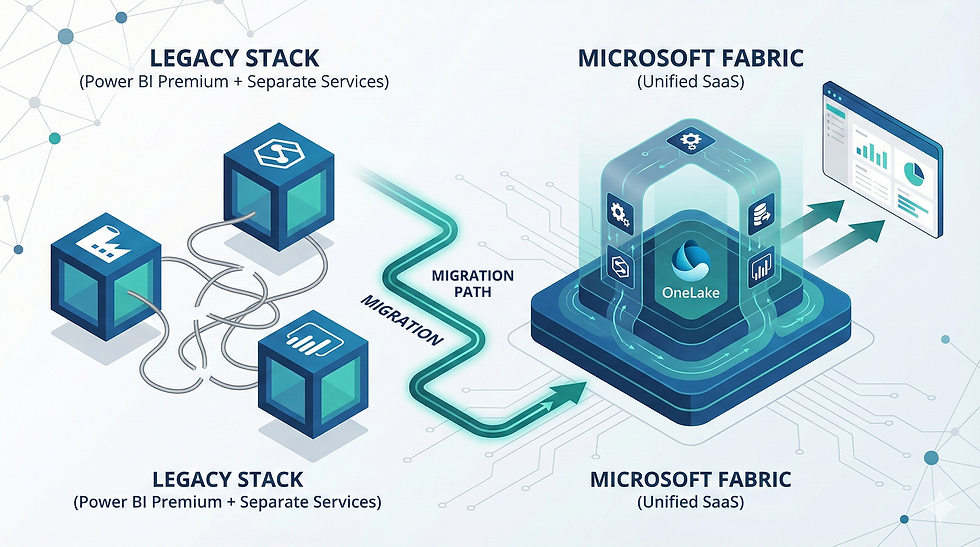How Business Consulting Services Can Save Your Company From Costly Mistakes
- Matt Lazarus

- Jun 23, 2025
- 5 min read
Updated: Sep 16, 2025
Australian enterprises lose substantial capital annually due to preventable internal errors rather than external market forces. These missteps occur when organisations attempt to resolve complex operational challenges without accessing appropriate professional expertise. The financial implications extend beyond immediate losses to encompass missed opportunities and long-term competitive disadvantage.
Business owners who rely exclusively on internal resources when confronting unfamiliar challenges frequently discover that their well-intentioned decisions have generated more significant problems than those they initially sought to address. Professional business consulting services exist specifically to prevent such scenarios through the application of specialised knowledge and proven methodologies.
The investment in professional guidance yields measurable returns through risk mitigation and strategic optimisation. Companies that engage qualified consultants position themselves to avoid the expensive learning curves that characterise trial-and-error approaches to complex business problems.
How Business Consulting Services Help Prevent Critical Business Errors Affecting Financial Performance
Organisations consistently encounter similar categories of expensive mistakes across different industries and market segments. These errors typically result from knowledge gaps rather than incompetence, highlighting the importance of accessing appropriate expertise when venturing beyond core competencies.
The most financially devastating mistakes that companies make include:
Strategic planning errors that allocate resources to initiatives lacking proper market validation or feasibility analysis
Technology implementation failures where systems create operational disruption rather than efficiency improvements due to inadequate assessment protocols
Operational inefficiencies that accumulate gradually while remaining undetected by internal monitoring systems until substantial damage occurs
Regulatory compliance failures resulting in penalties, legal exposure, and reputational damage that extends beyond immediate financial costs
Market timing miscalculations that either overextend organisational capacity through premature expansion or forfeit competitive advantages through excessive delay
These situations arise when decision-makers operate within information silos, lacking access to comprehensive industry intelligence and best-practice frameworks. The absence of external perspective compounds existing biases and limits the consideration of alternative approaches.
Intelligent executives make poor choices when operating without appropriate contextual knowledge. Experience within one domain does not automatically translate to expertise across all business functions, particularly in specialised areas such as regulatory compliance, technology integration, or market analysis.

Professional Risk Mitigation Through Expert Consultation
Manufacturing organisations prevent production bottlenecks and supply chain vulnerabilities through specialised guidance. Service providers avoid client retention problems and operational constraints by implementing proven management systems. Retail operations eliminate inventory management failures and customer experience deficiencies through expert intervention.
Business consulting services provide multiple layers of protection against costly errors:
Comprehensive risk assessment that identifies vulnerabilities before they manifest as operational crises requiring expensive remediation
Strategic planning expertise ensuring resource allocation aligns with validated market opportunities and organisational capabilities
Market intelligence analysis revealing competitive threats and growth opportunities invisible to internally-focused teams
Operational diagnostic evaluation eliminating productivity drains and process inefficiencies that erode profitability margins
Technology selection guidance ensuring system investments generate projected returns rather than creating additional operational complications
Professional consultants maintain current awareness of regulatory developments, industry trends, and competitive dynamics that inform strategic decision-making. This intelligence enables organisations to make informed choices that protect market position while identifying legitimate expansion opportunities.
The expertise differential becomes apparent when comparing internal capabilities against the specialised knowledge required for complex business challenges. Organisations cannot economically develop comprehensive expertise across all functional areas, making external consultation a rational resource allocation decision.
A management consultant brings cross-industry perspective that reveals solutions unavailable to companies operating within single market segments. This objective viewpoint proves particularly valuable when internal teams have become too familiar with existing processes to recognise improvement opportunities.
Economic Justification for Professional Business Guidance
The financial case for business consulting services becomes evident when comparing consultation costs against the expense of preventable mistakes. Professional intervention transforms potential operational disasters into competitive advantages through the application of proven methodologies and strategic frameworks.
Data-driven business decisions require access to accurate market intelligence and analytical capabilities that many organisations lack internally. Professional consultants provide both the technical tools and interpretive expertise necessary to convert complex information into actionable strategic recommendations.
Business performance improvement accelerates when companies combine internal institutional knowledge with external professional expertise. This collaborative approach ensures that recommendations account for organisational culture while incorporating industry best practices and proven implementation strategies.
The competitive advantage derived from professional consultation extends beyond immediate problem resolution. Organisations that engage experienced advisors develop enhanced internal decision-making capabilities that improve long-term strategic planning processes and operational management practices.
Professional guidance protects capital investments by ensuring that business initiatives receive appropriate planning support and execution oversight. This approach eliminates the learning curve costs associated with independent problem-solving attempts while reducing implementation risks and time-to-market delays.

Essential Areas Where Expert Guidance Makes the Difference
Professional business consulting services prove most valuable in these critical business areas:
Financial management systems where cash flow problems can compromise otherwise viable operations when executives lack expertise to recognise early warning indicators
Human resources administration that generates expensive legal exposure, employee turnover, and productivity losses without proper policy frameworks and management protocols
Marketing strategy optimisation requiring specialised market research and campaign management knowledge to avoid expensive promotional failures
Supply chain coordination becoming increasingly complex as operations scale, demanding expert guidance to prevent disruptions and cost escalation
Organisational change management ensuring structural transitions succeed without disrupting core business functions during system implementations or reorganisation initiatives
Each functional area demands specialised knowledge that most companies cannot justify developing internally given the frequency of application and expertise maintenance requirements. The cost of errors in these critical functions consistently exceeds the investment in professional consultation.
Successful organisations recognise that certain business challenges require external expertise regardless of internal capabilities. The decision to engage professional support reflects strategic thinking rather than organisational weakness, particularly when addressing unfamiliar challenges or capitalising on time-sensitive opportunities.

Making the Right Choice for Your Business
The decision to engage business consulting services should consider these key factors:
Challenge complexity assessment determining whether current issues exceed internal expertise and available analytical resources
Error cost evaluation comparing potential mistake expenses against professional consultation investment requirements
Implementation timeline constraints where delayed action could escalate manageable problems into organisational crises
Strategic opportunity capitalisation requiring specialised knowledge to maximise market advantages and competitive positioning
Long-term advisory relationship value building ongoing access to expertise and industry intelligence that supports continued growth
Professional consultation becomes essential when growth objectives and operational challenges exceed internal knowledge and experience. The business case for external expertise strengthens as organisations encounter increasingly complex market conditions and regulatory requirements.
Companies that establish relationships with qualified advisors gain access to ongoing expertise and objective analysis that supports strategic decision-making beyond individual project engagements. This relationship approach provides consistent value through changing market conditions and evolving business requirements.
The choice between independent problem-solving and professional consultation ultimately determines whether organisations optimise their performance or merely maintain operational continuity. Expert guidance transforms challenges into strategic advantages while protecting the capital investments that drive business growth and market success.
Frequently Asked Questions
How do we determine if our business challenges require consulting services or can be handled internally?
The decision criterion involves evaluating three critical factors: expertise availability, time constraints, and consequence severity. If your internal team lacks specific knowledge in the problem domain, if resolution timelines are compressed, or if mistakes could generate substantial financial impact, external consultation becomes necessary. Additionally, consider whether the challenge represents a one-time occurrence or recurring issue that justifies developing internal capabilities.
What return on investment timeline should we expect when engaging business consulting services for operational improvements?
ROI timelines vary significantly based on intervention complexity and implementation scope. Operational efficiency improvements typically demonstrate measurable results within 90-180 days, while strategic initiatives may require 6-12 months for full realisation. The key measurement should focus on avoided costs from prevented mistakes rather than solely on direct revenue generation, as risk mitigation often provides the greatest financial value.
Can business consulting services integrate effectively with existing management structures without disrupting current operations?
Professional consultants are specifically trained to work within established organisational frameworks while minimising operational disruption. The most effective engagements involve collaborative approaches where external expertise supplements rather than replaces internal decision-making authority. Successful integration requires clear communication protocols, defined roles and responsibilities, and structured knowledge transfer processes that enhance internal capabilities.



